Posted on 12/20/2024

Wheel bearings might not be the first thing that comes to mind when thinking about car maintenance, but they keep your ride safe and comfortable. These components allow your wheels to rotate smoothly while supporting the weight of your vehicle. But when a wheel bearing starts to fail, it can lead to serious issues if ignored. Let’s explore the telltale signs of a bad wheel bearing and why addressing the problem promptly is essential. Unusual Noises While Driving One of the most common signs of a bad wheel bearing is noise. You might hear a humming, grinding, or rumbling sound that gets louder as you accelerate or turn. This noise typically comes from the wheel with the damaged bearing and may vary in pitch depending on your speed. Ignoring these sounds could lead to more severe damage, so don’t brush it off as just road noise. Vibration or Wobbling in the Wheels Ever felt your car vibrating or wobbling, especially at higher speeds? Faul ... read more
Posted on 11/29/2024

Buying a used pickup truck can be a smart move. You’ll save money on the upfront price and avoid some of the depreciation that comes with buying new. But as great as the savings may seem, the condition of a used truck can vary widely. Knowing what to look for can be the difference between driving off with a reliable workhorse or signing up for constant repairs. Here’s a closer look at the key areas to inspect before making your purchase. 1. Examine the Truck’s Frame and Undercarriage for Signs of Damage The frame and undercarriage of a truck can reveal a lot about its history. Start by thoroughly inspecting the frame. Look out for signs of rust or corrosion, especially around the wheel wells, suspension components, and any metal parts exposed to the elements. A little surface rust is normal but deep; flaking rust is a red flag—it can weaken the truck’s structure over time. Also, check for any dents, bends, or cracks in the frame, as thes ... read more
Posted on 10/31/2024
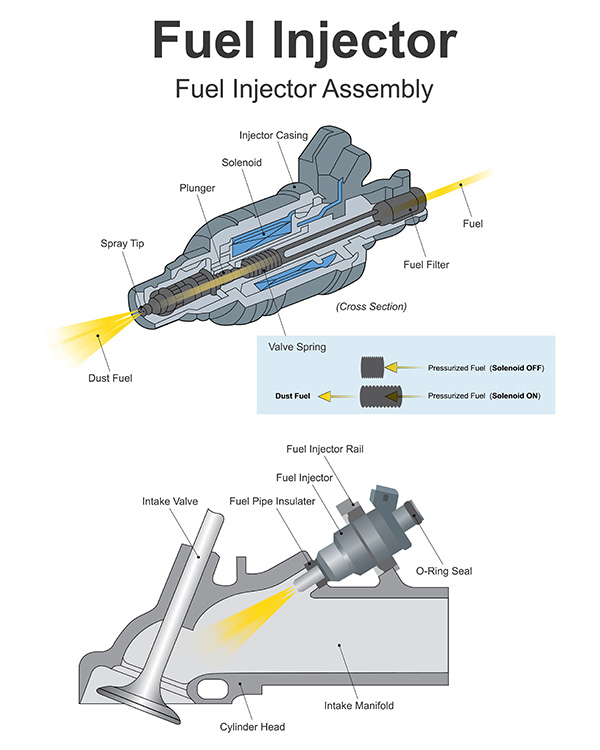
Your car's fuel injectors keep your engine running smoothly by delivering the right amount of fuel into the combustion chamber. When a fuel injector starts to malfunction, it can throw your entire engine's performance out of whack, leading to a host of issues. Ignoring the symptoms of a bad fuel injector can lead to more significant and expensive problems down the road. But how do you know if your fuel injector is going bad? Here are the most common symptoms you should watch out for. 1. Poor Engine Performance One of the most obvious signs of a bad fuel injector is poor engine performance. When a fuel injector is clogged, stuck, or leaking, it disrupts the fuel-to-air ratio that’s necessary for your engine to function properly. This imbalance often causes the engine to misfire, leading to rough idling, hesitation, and a noticeable loss of power. If you feel like your car is struggling to accelerate or if the engine is stuttering, your fuel injectors mig ... read more
Posted on 9/27/2024

Owning an SUV comes with a unique set of responsibilities, particularly when it comes to keeping it in top condition. Given their larger size and versatility, SUVs are designed for everything from daily commuting to off-road adventures, but they need proper care to stay in peak shape. Whether you rely on your SUV for long road trips, hauling cargo, or navigating rough terrain, regular maintenance ensures its performance stays reliable, and it helps you avoid unexpected repairs. So, what should every SUV owner know about taking care of their vehicle? Regular Oil Changes One of the most critical aspects of SUV maintenance is ensuring regular oil changes. Your SUV’s engine needs clean oil to keep it running. Over time, oil becomes contaminated with dirt and debris, causing it to lose its effectiveness in lubricating engine components. This can lead to increased friction, overheating, and, ultimately, engine damage. Make it a habit to check your oil level re ... read more
Posted on 8/30/2024

Driving should be an enjoyable and secure experience. However, if your steering wheel feels loose or unresponsive, it can turn every trip into a nerve-wracking ordeal. This common issue can stem from various problems within your vehicle's steering system, and understanding the root cause is important for both your safety and your car's longevity. Potential Causes of a Loose Steering Wheel A loose steering wheel can be symptomatic of several underlying issues. These range from minor adjustments to significant mechanical failures. Here are some common causes: Worn Steering Components Over time, parts of your steering system can wear out. Ball joints, tie rods, and bushings are all susceptible to wear and tear. When these components degrade, they can create play in the steering wheel, making it feel loose. Regular maintenance and timely replacement of these parts can prevent this issue from escalating. Steering Rack Problems T ... read more
Posted on 7/26/2024
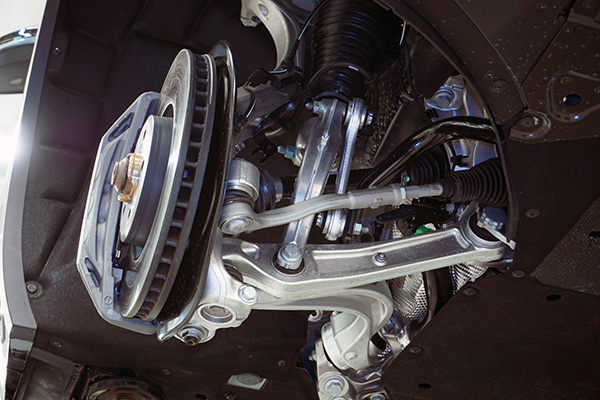
Ever felt like your car was more suited for the open seas than the open road? That unsettling feeling of your vehicle rocking back and forth can be both annoying and dangerous. But what's causing this nautical motion in your car, and how can you fix it? We have listed the reasons why your car might be rocking and what you can do to ensure a stable ride. Suspension System Issues One of the primary culprits behind a rocking car is the suspension system. The suspension system is designed to absorb shocks and keep your car stable, but you'll definitely feel it when it malfunctions. Over time, components like shocks, struts, and springs can wear out or get damaged, leading to that dreaded rocking sensation. If you notice excessive bouncing or swaying, especially when driving over bumps or around corners, your suspension system likely needs attention. Worn-out shocks and struts are particularly common issues. When these components are no longer able to effectively ... read more
Posted on 6/28/2024
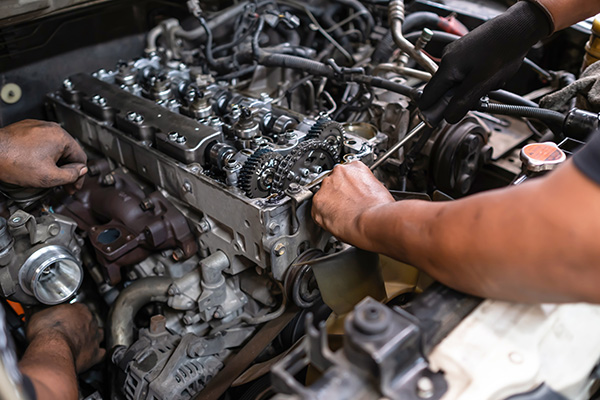
Is your car making strange noises, losing power, and constantly breaking down? These are signs that your engine might need some serious attention. One solution that can bring your car back to life is an engine overhaul. But what exactly is an engine overhaul, and how can it rejuvenate your vehicle? Let's explore the details and how this intricate process can transform your driving experience. The Engine Overhaul Process An engine overhaul, also known as a rebuild, involves disassembling your vehicle's engine and thoroughly inspecting, cleaning, and replacing worn-out parts. This process can be likened to giving your engine a second chance at life. At Pete's Auto Service, our skilled technicians meticulously examine each component, including the pistons, cylinders, crankshaft, and valves, to ensure everything is in optimal condition. If any part is beyond repair, it is replaced with a new or refurbished one. The engine is then reassembled ... read more
Posted on 5/27/2024

Navigating Charlotte's heavy traffic can be daunting, but with the right strategies, you can stay safe and maintain your sanity on the road. We'll share practical tips and techniques to help you navigate congested streets, avoid common pitfalls, and arrive at your destination stress-free. Charlotte's Traffic Patterns To effectively navigate Charlotte's heavy traffic, you must understand the city's traffic patterns. Peak hours typically occur during morning and evening rush hours, with congestion exacerbated by ongoing construction projects and major events. Familiarizing yourself with these patterns can help you plan your routes and avoid the busiest times on the road. Plan Your Routes Wisely When traveling in Charlotte's heavy traffic, planning your routes ahead of time can make a significant difference in your commute. Utilize GPS navigation systems or smartphone apps to identify alternative routes and real-time traf ... read more
Posted on 4/29/2024
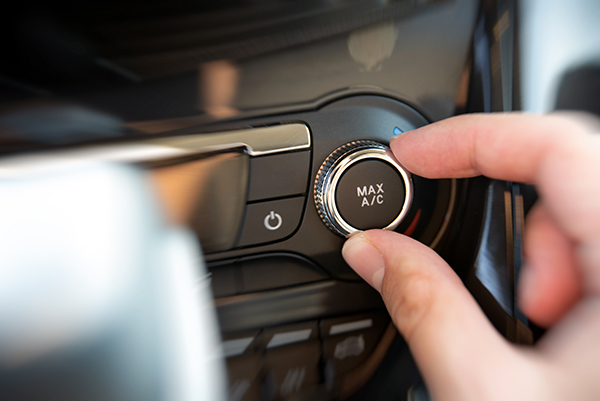
Are you feeling the heat even when your car's AC is on full blast? Many drivers encounter this frustrating situation, especially during scorching summer months. We'll explore why your car's AC might blow hot air and discuss practical solutions for returning it to its chilling best. Common Reasons for Hot AirRefrigerant Leak A refrigerant leak is one of the most common culprits behind hot air blowing from your car's AC. Refrigerant is the substance responsible for cooling the air in your AC system, and if there's a leak, it can result in insufficient cooling. Faulty Compressor The compressor is the heart of your car's AC system, and if it's malfunctioning or failing, it can lead to hot air blowing from the vents. Issues with the compressor can range ... read more
Posted on 4/2/2024
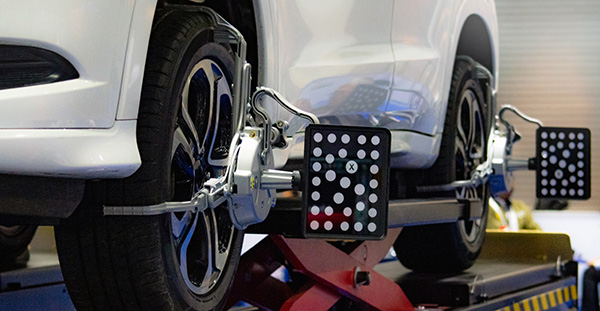
Is your car veering to one side when you're driving straight ahead? Do you feel vibrations through the steering wheel? These could be signs that your car needs a wheel alignment. Ignoring these warning signs can lead to uneven tire wear, poor handling, and compromised safety on the road. 1. Uneven Tire Wear Have you noticed that your tires are wearing down unevenly? If the tread on one side of the tire is significantly more worn than the other, it could be a sign of misalignment. When your wheels are not properly aligned, they exert uneven pressure on the tires, causing them to wear down prematurely. Regularly inspecting your tires for signs of uneven wear can help you catch alignment issues early and prevent further damage. 2. Vehicle Pulling to One Side One of the most common signs of wheel misalignment is when your car pulls to one side while driving on a st ... read more